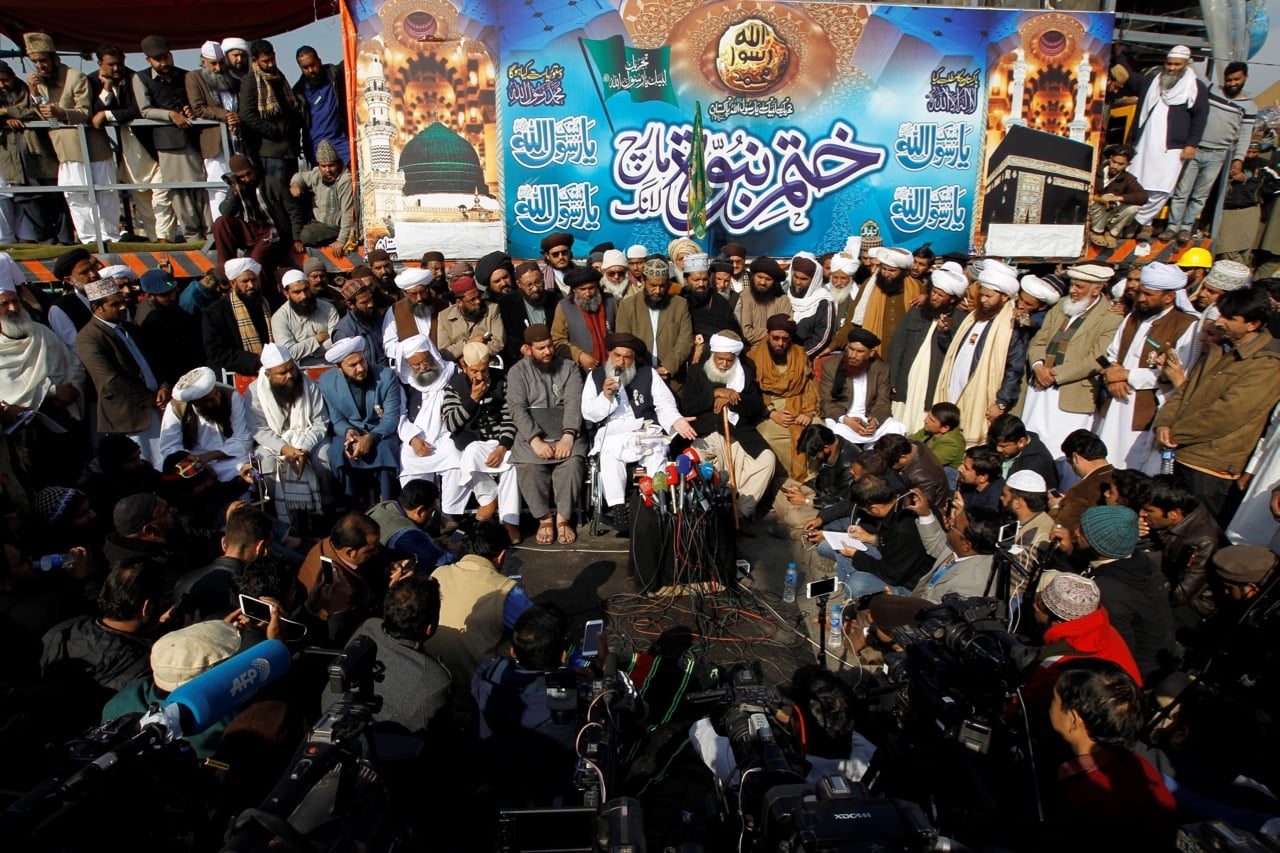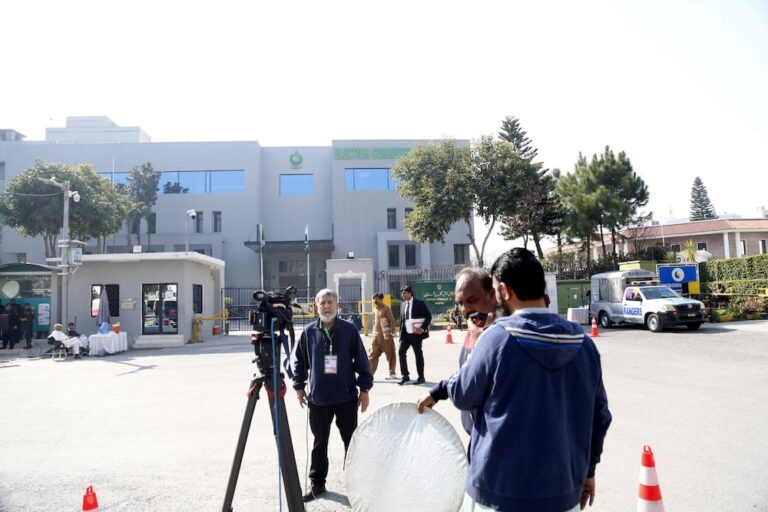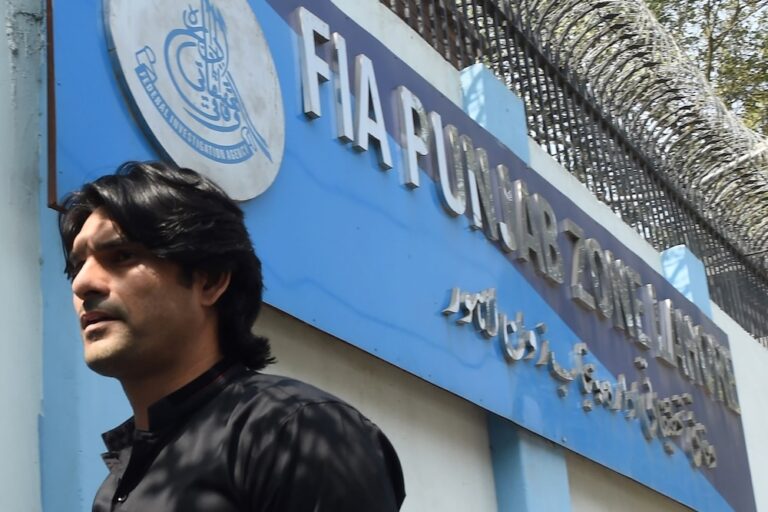The media blackout lasted for 27 hours while police launched a crackdown against protesters in Islamabad.
On November 25, 2017, the Pakistani government suspended all national private news channels, Facebook, YouTube, Twitter, and Dailymotion across the country for over 24 hours, to prevent coverage of a police crackdown against protesters in Islamabad, the capital of Pakistan. A number of journalists were also injured while covering the protests.
Around 8,000 security officials took part in the operation aimed at dispersing the activists of Tehrik Labaik Ya Rasool Allah, a religious party that had been staging a sit-in for 21 days in a busy intersection of the city. The Islamabad High Court had ordered the administration to clear the protesters, but the operation proved unsuccessful and it led to protests all over the country.
A number of journalists covering the protests were injured and two news gathering vans of television channels were also set on fire. Journalists who were injured in Islamabad included, Yaseen Hashmi, Islamabad Bureau Chief Business Plus; Qamar Munawar of Dunya News; Sadam Mangat of Channel 24; photographer Tanver Shahzad of daily Dawn newspaper, photographer Pervez Aasi of Metro Watch; Sultan Shah of Aab Tak TV and Shiraz Gardezi of Geo TV. In Karachi, protestors of the same religious party attacked and injured Tariq Abul Hasan and Talha Hashmi of Geo News channel in two separate incidents. Protesters in Islamabad also burned the news gathering vans for the television news channels Aaj TV and Samaa TV.
The Pakistan Electronic Media Regulatory Authority (PEMRA) had directed all private news channels to suspend transmission, after accusing them of violating the code of conduct. Similarly, the Pakistan Telecommunication Authority (PTA) ordered the suspension of various popular social networking sites, including Twitter, Facebook, YouTube and Dailymotion.
The media blackout triggered a spate of speculations and left people without information about what was happening in major cities across Pakistan.
The transmission of the television networks and social media platforms were restored on November 26 after remaining suspended for over 27 hours. PEMRA also issued guidelines for the television channels as to how to cover similar protests in the future.
In a statement, Minister of State for Information and Broadcasting Marriyum Aurangzeb defended the media suspension and said, “Suspending the transmissions was a painful decision which had to be taken in the national interest after exhaustive deliberations with a view to prevent the spread of chaos and anarchy in the country.”
Meanwhile the action by PEMRA has been challenged in the Lahore High Court by the Civil Society Network as being in violation of articles 19 and 19-A of Pakistan’s Constitution, which guarantee freedom of the press and right to information.
The Pakistan Broadcasters Association (PBA), the All Pakistan Newspapers Society (APNS), the Council of Pakistan Newspaper Editors (CPNE) and the Pakistan Federal Union Journalists (PFUJ) strongly condemned the blackout of the private news channels by the government.



